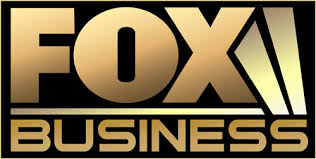
People want t
o buy products that say smart things about them - but how can American car manufacturers address that need when the price of a company's stock, like General Motors, sells for less than $10 a share? That's not smart - and I don't care how many sharp looking "strivers" and "achievers" you throw into those Cadillac ads and positioning statements under the heading "brand character." Do you want proof that a company's management jumps to conclusions before they jump to the facts? Do you want proof that a company's management does no homework before engaging their mouth? Just look at Chrysler's $2.99 Gas Guarantee promotion. Not only does Chrysler find it difficult to sell cars. Now they're selling gas instead. And once you've sold price your brand equity sinks so low you have to climb up a ladder to get to the bottom. But wait. That's where Chrysler already is. Where is the dramatic turnaround shift? Talking about Chrsler's wonderkind CMO let's quote Casey Stengel who once asked, "Is this all there is, or is this all you got?" Why doesn't each product line have a unique selling proposition instead of generic segmentation? Is it not true that doing the same things the same way and expecting different results is the definition of insanity? Do basics, adventurers and other socio-economic classes of consumers actually see themselves in Wranglers and Cherokees when the stock of American car companies like GM sell for less than $10 a share? The purchase just says, "You're dumb." Years ago my research for GM found people want "to buy products that say smart things about me." Sure, the economy and the housing/mortgage/credit crunch are excuses in combination with the high price of gas - but it's only an excuse - and excuses have to be corrected. I am certain that everything management knows about how to market its vehicles and leverage its brands comes from fine market research processes that gather and measure data. But the trouble with quantifying yesterday is that it does not tell you anything a company needs to know today - at present. As Captain Kirk did in the Kobiashi Maru simulation at Starfleet Academy - Chrysler needs to create new knowledge that does not yet exist to be measured to alter consumer habits and practices and to change the rules of the simulation to win. Except slow moving inventories are not a simulation. Look at this lot. Everyday, we drive past auto malls jam packed with slow moving inventories. Banners proclaim fantastic deals, yet day after day we see the same lots. Why doesn't a dealer get smart and one night after closing remove 80% of his inventory from sight. The next day most of us would think, "Wow! Something's going on. Either there is a blow out clearance sale or the dealer's going bankrupt." The sharks would swim in looking for the deals smelling blood in the water. What a perfect environment and buyer mindset to close the sale. That's what sales people call Jonesing people.





1 comment:
There are so many things they need to do to, where do you start? Any car mfr who wants to succeed in this global market must skate to where the puck will be, which is essential considering the long leadtimes needed to get an idea onto the showroom floor.
They also must streamline their dealer network so that each location is offering Chrysler, Dodge and Jeep. Manufacturing look-alike, twin models for Dodge and Chrysler simply to appease one-off Dodge or Chrysler dealers is unacceptable.
Then they must sharpen the brand identities around each mark. Make Dodge the truck and muscle mark. Jeep invented the SUV category and should execute better in that area, especially with a hybrid offering and sharper styling. They've been resting on 15 year old laurels at this point. Chrysler can fous on 2 and 4 door models. The 300 is a decent seller, a poor man's Bentley. They should bring out a higher end model (call it Imperial?) to drive the Bentley association (and profit per vehicle) further.
Can they do all this without running out of cash first? We'll see. Maybe GM, Ford and Chrysler are like three campers lost in the woods facing a grizzly bear. The slowest runner gets eaten first. The survivors can pick up some of the loser's share.
Post a Comment